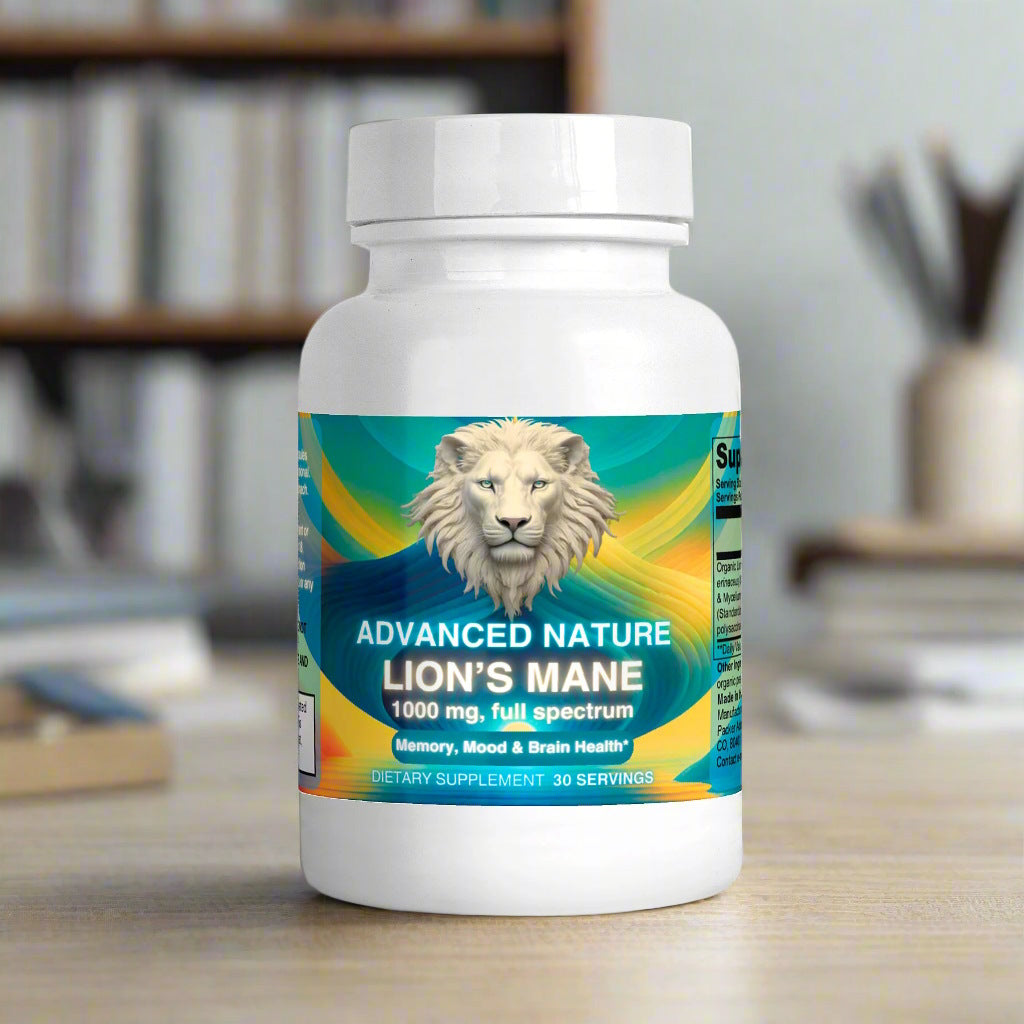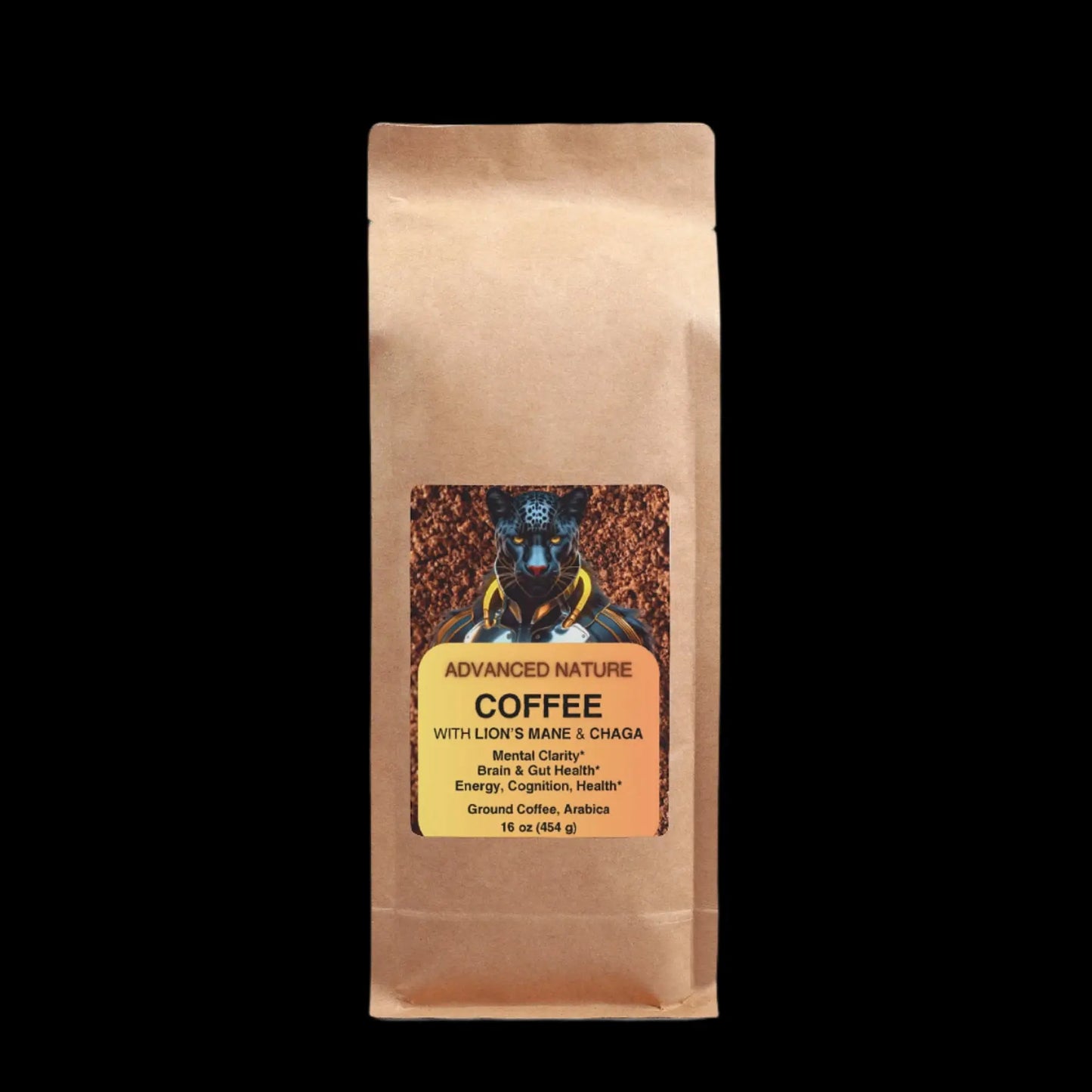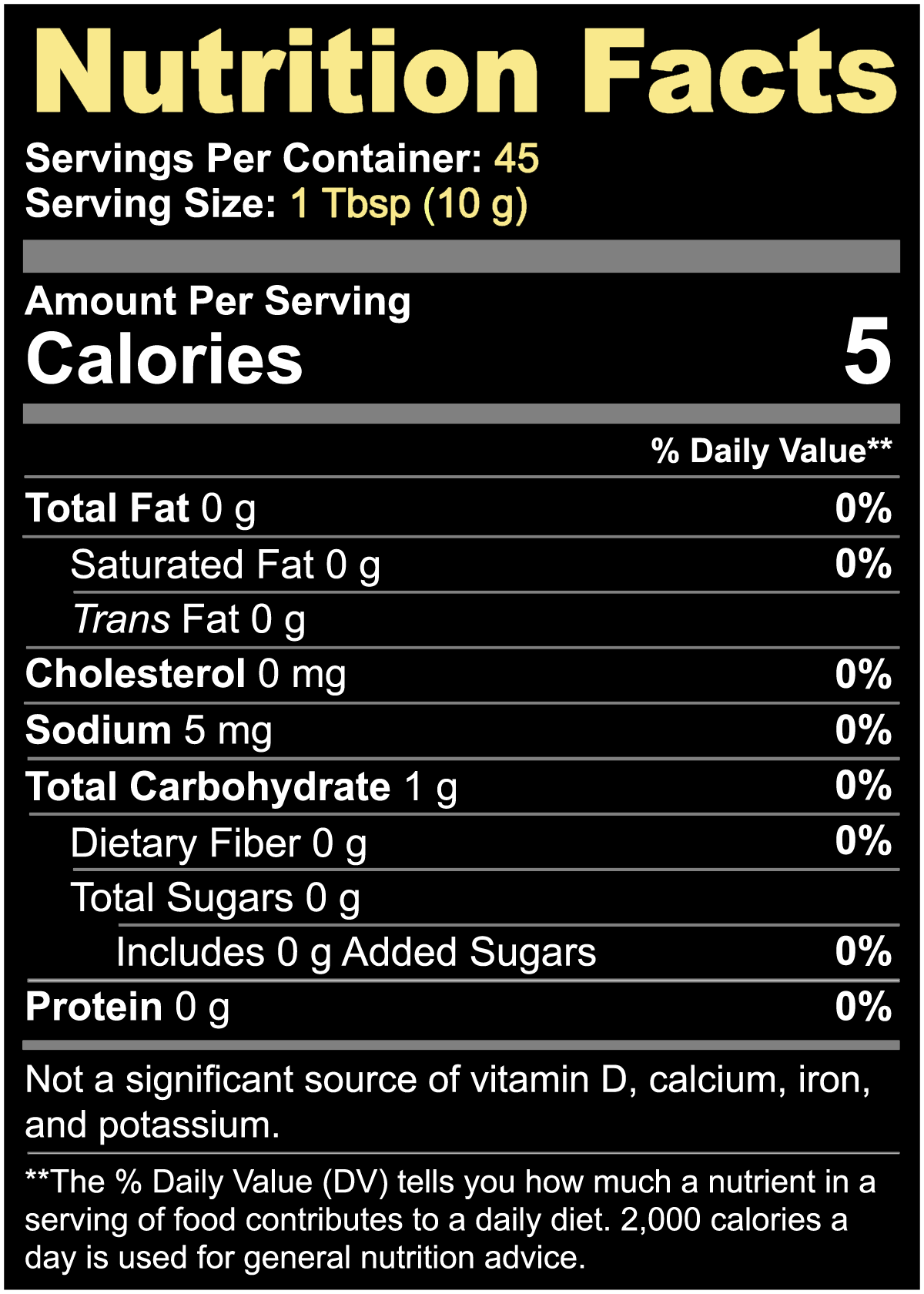
Lion's Mane for 🧠Brain Health and Cognitive Performance
Share
Lion's Mane (Hericium erinaceus) is an edible medicinal mushroom used for centuries in Eastern medicine, as well as in Japanese, Chinese, and Korean cuisines. [1]
In recent years, extensive research on Lion's Mane has demonstrated neuroprotective, neuro-regenerative, and nootropic properties of this mushroom and its compounds. [2, 3]

Bioactive Compounds
Lion's Mane contains bioactive compounds like erinacines, hericenones, polysaccharides, and ergothioneine. [4, 5]
Erinacines are present in Lion's Mane's mycelium, Hericenones are present in its fruiting body. Polysaccharides and ergothioneine are present in both. [5, 6]
- Erinacines and hericenones can stimulate nerve growth factor (NGF) and brain-derived neurotrophic factor (BDNF) synthesis, which is crucial for neuroplasticity and memory, and overall brain health. [7, 8, 9] They also improve neurite outgrowth (new connection formation) through other mechanisms [5], and enhance neurogenesis (new brain cells formation) in the hippocampus. [10, 11]
- Erinacines are present in Lion's Mane's mycelium (150 µg/g of Erinacine A)
- Hericenones are present in Lion's Mane's fruiting body (500 µg/g of Hericenone C; <20 µg/g of Hericenone D) [5, 6]
- Polysaccharides have shown immunomodulatory and antioxidant activities. [5, 12, 13]
- Ergothioneine is a potent antioxidant that can reduce oxidative damage. [14, 15, 16] It is present in both the mycelium (580 µg/g) and the fruiting body (340 µg/g) of the mushroom. [5, 6]

A summary of active substances of Lion's Mane and their biological activities (adapted from Qiu Y. et al., 2024)
Animal & Cell Culture Studies
The neuroprotective mechanisms involve nerve growth factor (NGF) and brain-derived neurotrophic factor (BDNF) synthesis stimulation, which is crucial for neuroplasticity and memory, antioxidant effects and anti-inflammatory activities. [2, 3, 17-22]
- In mouse models, Lion's Mane extracts improved memory and reduced amyloid plaques and inflammation in Alzheimer's disease models. [17, 18]
- Lion's Mane treatment increased neurogenesis (new brain cells production) markers like doublecortin in the hippocampus of aged mice. [19, 20]
- In vitro, Lion's Mane stimulated neurite outgrowth (which is crucial for neuroplasticity and memory), and protected neuron cells from toxicity. [21, 22]
- Also, the 2025 in vitro study has concluded: "...Hence, our findings emphasize the therapeutic promise of myo-inositol compounds of the H. erinaceus [Lion's Mane] aqueous extract in ADHD conditions." [23]
- Finally, a 2024 study on mice, published in Biology, has concluded that Lion's Mane "promotes the growth of beneficial gut bacteria, parallelly reducing pathogen bacteria, therefore revealing its prebiotic effect. Additionally, this oral supplementation had a positive impact on cognitive function, also leading to a decrease in inflammation in the hippocampus, a brain area crucially involved in memory formation and consolidation. Overall, these findings support the notion that changing the gut microbiome composition through nutrition modulation could trigger longevity-promoting effects, protecting from age-related cognitive decline." [24]
 Lion's Mane's Beneficial Effects on Gut–Neuroinflammaging–Cognitive Axis (adapted from Priori, E. C. et al., 2024)
Lion's Mane's Beneficial Effects on Gut–Neuroinflammaging–Cognitive Axis (adapted from Priori, E. C. et al., 2024)
Human Studies
- In a pilot study on 30 people with mild cognitive impairment, Lion's Mane improved cognitive scores compared to placebo. [25]
- A trial on people over 50 found Lion's Mane prevented short-term memory decline and improved cognition. [26]
- In people with mild Alzheimer's disease, supplementation with Lion's Mane molecule erinacine A improved cognitive function and daily living scores. [27]
- 2 small studies also found reduced depression and anxiety symptoms with Lion's Mane intake. [28, 29]
- 1 more non-randomized clinical study of 77 people has also found that: "H. erinaceus (Lion's Mane) promoted an improvement in mood disorders of a depressive-anxious nature and of the quality of nocturnal rest. These effects persisted after eight weeks of H. erinaceus wash-out, suggesting that H. erinaceus might affect neuronal plasticity as expected by a NGF or BDNF like effect." [30]
Conclusion

Overall, Lion's Mane is a promising natural supplement for supporting brain health and cognitive performance, while providing a wide range of additional benefits 🧠🌞🍏🍀🛡️⚡🍸🧬


![Advanced Nature Lion's Mane capsules. Supplement Facts label showing the following information:
Serving Size: 2 Vegan Capsules. Servings Per Container: 30.
Amount Per Serving:
Organic Lion’s Mane (Hericium erinaceus) Mushroom Fruiting Body & Mycelium Powder: 1000 mg (Daily Value not established).
(Standardized to 40% polysaccharides [400mg])
Other Ingredients: Organic capsule (pullulan, water), organic pea starch.](http://biohq.store/cdn/shop/files/biohq-advanced-nature-lions-mane-mushroom-500-mg-full-spectrum-supplement-facts.png?v=1769363546&width=1445)

























